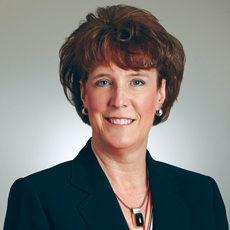
I, maybe like you, take random pictures of what catches my eye with my phone. So much so, I have over 30,000 thousand pictures in the cloud. I am sure that by the time I take my last breath, I will be in the millions of digitally stored items.
My children someday will have fun sorting the digital “stuff” I leave behind. I can hear them now: “What was Mom thinking about taking this picture of her thumb?” “Does this hold some significance?” (For future reference, there is no significance of the thumb picture — the phone did it on its own when I put it in my purse.)
Yet, having digital snapshots does capture the frame of mind you are in on a specific date. Most of the time I fail to capture the original author, but I resonate with their thoughts.
Case in point, on May 11, 2021, I took a picture of the following statement:
“Leadership requires managing a robust discussion about the current situation and root causes and knowing when to pivot the dialogue to problem resolution and conversation about forward momentum.”
“The key is to ask a question that prompts a quiet but crucial transition to a future focus, rather than ongoing analysis of the past or present. Sometimes the nudge that is needed is to just ask, ‘What one small thing within our control could we do to make the situation a bit better?’ or ‘What have we or others done when we have solved problems like this before?’ Or creating a bigger frame with a question, like ‘what would it look like if things were ideal?’ or ‘What would we do if we knew that we would not fail?’”
What would we do if we knew that we would not fail? Ask yourself again, “What would you do if you knew that you would not fail?” Failure in the last 18 months has brought on a new definition. Failure meant transmission of disease, or loss of life. To some failure meant reduction or loss of revenue, on the individual level it meant loss of income, stability.
These very real outcomes have created what some are calling the vortex of COVID-19. Leaders are unable to move forward as they keep spinning around reacting to whatever is currently enveloping them.
It will take courage to push out of the vortex, to rise and focus on the horizon. Courageous leadership takes a willingness to acknowledge what is not OK now, and dream of what or how it could be so much better.
I spoke with a leader and asked, “What would you do if you knew that you would not fail?” He paused for an awkwardly long time, and slowly said, “I would transform healthcare because it is not working now and it has to work, it needs to work.”
Let me ask you, what would you do if you knew that you would not fail?
Go ahead, pause, and think. Then write your answer down.
Now write down what is the first step you would need to do.
Take the step.
Martie L. Moore, MAOM, RN, CPHQ, has been an executive healthcare leader for more than 20 years. She has served on advisory boards for the National Pressure Ulcer Advisory Panel and the American Nurses Association, and she currently serves on the Dean’s Advisory Board at the University of Central Florida College of Nursing and Sigma. She was honored by Saint Martin’s University with an honorary doctorate degree for her service and accomplishments in advancing healthcare.
The opinions expressed in McKnight’s Long-Term Care News guest submissions are the author’s and are not necessarily those of McKnight’s Long-Term Care News or its editors.





